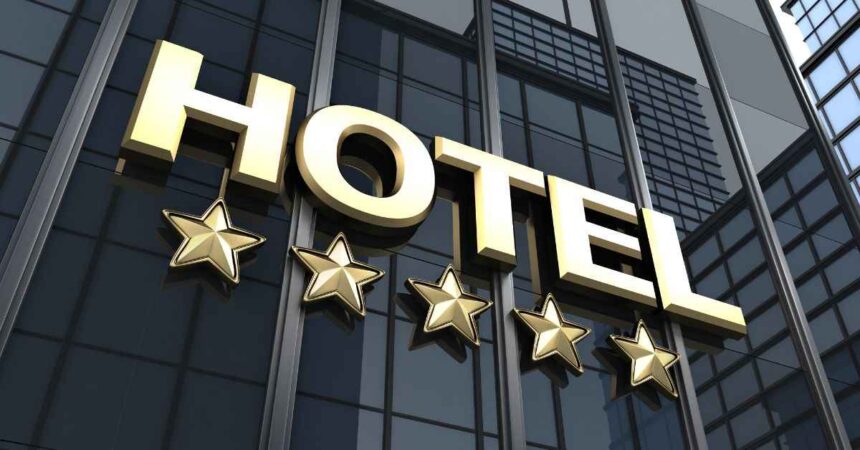I have vivid memories of two trips. Kyoto was the first destination. A tiny, family-run ryokan hidden down a quiet residential street was what I had reserved. I would wake up every morning to the aroma of green tea and the ring of a distant temple bell. The proprietor would direct me to her favorite neighborhood noodle shop or a secret garden that isn’t mentioned in any travel guides. That ryokan was more than just a place to sleep; it was the center of my trip and a haven that strengthened my bond with the city.
The second journey took place in a busy seaside city. I booked a hotel that looked good on paper because it was cheap and had glossy professional photos. The reality was a noisy, soulless box with paper-thin walls, located in a “convenient” area that was actually a logistical nightmare. It sapped my vitality and clouded an otherwise stunning location with a gray hue. I dreamed about my own bed all week long.
The most important lesson I learned from these two trips is that the vacation accommodation you choose is a very important consideration. After deciding on your destination, this is the most crucial choice you will ever make. In a strange place, your hotel serves as your anchor. It serves as both your haven for relaxation and your command center for adventure. Making the correct choice can turn a decent trip into an amazing one. It can be broken by making the wrong choice.
This isn’t just another list of hotel booking tips. This is my tried-and-true, five-step guide to hotel selection. I’ve honed this method over thousands of nights in a variety of hotels, from five-star palaces to modest guesthouses. This all-inclusive hotel selection guide is made to empower you, help you sort through the marketing jargon, and guarantee that you always find the ideal location to call your temporary home. Let’s get started.
[Image Alt: The ideal vacation lodging—a calm and chic hotel room with a cozy bed, a balcony overlooking a stunning city, and a suitcase open on a luggage rack.]
Phase 1: The Dream & Define Stage: Determining the “Why” Before the “Where”
The most important work starts before you even type a word into a search bar. You define the essence of your journey during this introspective phase. The clarity you create here will inform every subsequent decision. Answering “Why am I going?” is the first step in how to choose a hotel.
The “Purpose” Audit: What Is Your Trip’s Mission?
The “ideal” hotel for a family vacation is very different from the ideal hotel for a romantic retreat. Tell the truth about the main reason you are on vacation.
- The Romantic Escape: Are you looking for closeness and companionship? Your hotel ought to be a haven. Seek out properties with a calm, adults-only atmosphere, boutique hotels, and rooms with deep soaking tubs or private balconies. The room itself is emphasized as a destination.
- The Family Adventure: Survival and convenience are the goals here! Space, robustness, and kid-friendly features are essential. Seek out hotels with pools, complimentary breakfasts to make mornings easier, suites or connecting rooms, and locations close to parks or other attractions.
- The Solo Discovery: You are the focus here. Do you prefer quiet seclusion or social interaction? For meeting other travelers, a hostel with a fantastic common area or co-living space might be ideal. A chic serviced apartment or a hotel with a fantastic library bar might be perfect if you’re craving peace and quiet.
- The Business Trip: Efficiency is crucial. A hotel with dependable high-speed Wi-Fi, a suitable desk, a convenient location for meetings, a front desk open around-the-clock for late arrivals, and a convenient way to get a good cup of coffee in the morning is essential.
- The Retreat for Relaxation: The hotel is the location. The most important factors are the spa’s quality, the tranquility of the pool area, the beds’ comfort, and the tranquility of the surroundings. Seek out hotels or resorts with a wellness focus that are a little bit away from the action.
Location, Location, Location: Establishing Your “Anchor Point”
Knowing your “why” will help you determine your “where.” Instead of just looking for hotels in “Paris,” consider which neighborhood will be the ideal starting point for your particular journey.
- Heart of the Action: By choosing to stay in the city center, you can walk to many of the main attractions, eateries, and retail establishments. It’s ideal for short trips and first-time visitors who wish to make the most of their time. Higher costs and more noise are frequently the trade-offs.
- The Quiet Suburb: Selecting a hotel in a residential neighborhood provides a more intimate experience, more peaceful evenings, and frequently better value. It’s perfect for visitors who wish to get away from the tourist trap or for longer stays. The time and expense of making the daily commute into the center are the trade-off.
- Beachfront Bliss vs. Cliffside Charm: For beautiful beaches, would you rather be on the sand (beachfront) or have a breathtaking view from a distance (cliffside)? While cliffside hotels may offer more privacy and dramatic views, beachfront hotels are more convenient.
- **The Transit Hub: ** Being close to a major train or bus station can be a huge advantage, saving you time and stress if you’re planning a lot of day trips.
Budgeting Beyond the Nightly Rate: Determining the Actual Expense
Examining the entire cost rather than just the price per night is one of the most popular hotel booking tips I offer. Long-term costs may increase if you choose a less expensive hotel that is located far from all of your attractions.
- Resort Fees: Many hotels in locations such as Hawaii or Las Vegas impose a mandatory daily “resort fee” that is not covered by the original rate. This includes amenities like Wi-Fi and pool access and can cost an additional $30 to $50 per night. Always read the fine print.
- Transportation Costs: Are you truly saving money if you reserve a hotel 45 minutes outside of the city to save $50 per night but have to pay $30 per day for round-trip transportation? Add in the price of buses, metros, or Ubers to get from your possible hotel to your “anchor point.”
- Food & Drink: Does breakfast come with the hotel? This can save a significant amount of money. Are you forced to eat at pricey hotel restaurants or are there reasonably priced local restaurants nearby?
The Vibe Check: Aligning Your Personality with the Hotel’s
Each hotel has its own distinct personality. Is it a good fit for you? Take a look at the pictures, read the descriptions, and try to sense the “vibe.”
Personalized service, distinctive designs, and a strong sense of place are characteristics of boutique and independent establishments. Ideal for tourists looking for a unique experience and character.
- Big & Branded: Consider Hyatt, Marriott, and Hilton. Consistency, dependability, and frequently comprehensive amenities like sizable gyms, business centers, and numerous dining options are to be expected. Excellent for families or business travelers who appreciate consistency.
- Historic & Grand: A trip back in time can be had by staying at a grand dame hotel. Anticipate traditional elegance, but occasionally smaller rooms or outdated plumbing.
- Modern & Minimalist: Sleek design, the newest technology, and clean lines. Ideal for people who value modern design.
Phase 2: The Search and Sift Phase: Getting the Hang of the Digital Toolkit
It’s time to begin your search now that you have a clear idea. The abundance of options available on the internet can be daunting. The secret is to strategically use the digital tools to sort through the clutter and locate the treasures.
Selecting Your Weapons: Benefits and Drawbacks of Reservation Websites
Directly on the hotel’s website or via an online travel agency (OTA) are the two primary methods of searching.
- **Online travel agencies (OTAs), such as Booking.com, Expedia, and Agoda:
- Pros: Great for comparing a lot of properties at once. The filtering and mapping tools are strong. There are many and well-integrated user reviews.
Cons: Occasionally have more stringent cancellation policies. Since you are the OTA’s client rather than the hotel’s, problems may be harder to resolve. Loyalty benefits might not be honored. - Direct Reservations with the Hotel:
- Advantages: frequently offer more accommodating cancellation policies. You can accrue status benefits and loyalty points. Since you are a direct customer, you might be given better rooms. They occasionally provide exclusive deals or a marginally lower price.
- Cons: You can only compare rooms within that one hotel or brand.
My Pro Strategy: For the “Search & Sift” stage, use OTAs. Their discovery tools are unmatched. After you’ve selected two or three of the greatest hotels for your trip, open new tabs and visit their websites directly. Before deciding, compare the total cost (including all taxes and fees) and cancellation policies.
The Art of the Map View: An Illustrated Guide to Hotel Choosing
This is the most crucial piece of advice I have ever given. Despite a hotel’s claims to be “centrally located,” the map is always accurate.
- Enter the dates and destination in the OTA of your choice.
- Change to “Map View” right away.
- In Phase 1, you designated a neighborhood as your “anchor point.” Zoom in on it.
- The hotels that are truly close to that metro station, a block from the beach, or directly next to that lovely park are now visible to you. You can tell if a hotel advertised as being in the “city center” is actually tucked away on a quiet side street or on a noisy six-lane road. Written descriptions are not as effective as this visual context.
Interpreting Online Reviews: How to Interpret Them
Although reviews are a great source of information, they can also be deceptive. You must develop detective-like reading skills.
- Filter by “Recent”: In 2025, a review from 2019 is worthless. Limit the display of reviews to those from the previous six to twelve months. This guarantees that the data accurately depicts the hotel’s current situation.
- The Magic of 3-Star Reviews: 5-star reviews are frequently ecstatic and succinct (“Amazing!”). One-star reviews can come from people who are always dissatisfied. The 2, 3, and 4-star reviews typically contain the most thorough and impartial comments. Here, people will compliment the positive while offering helpful critiques of the negative.
- Seek Patterns, Not Anecdotes: A single employee’s complaint about a rude employee may be an isolated incident. Three months and ten mentions? There is a pattern there. Someone bringing up the slow Wi-Fi? Perhaps their connection was poor. Twenty people claiming it can’t be used for video calls? That information is trustworthy.
- Verify Management Reactions: Does hotel management reply to reviews, particularly unfavorable ones? A considerate, contrite reply demonstrates their concern for the visitor experience. Red flags include a defensive or nonexistent response.
- Examine Guest Photos: Pay no attention to the flawless, wide-angle expert photos. Select the images that real travelers have submitted. These will show you the size of the room, its actual appearance, and whether or not there are any indications of wear and tear.
Phase 3: Examining Beyond the Star Rating: The Deep Dive & Detail Stage
A couple of the candidates you have identified show promise. It’s time to put on your detective’s hat and look into the specifics that make a good stay into a fantastic one. The fine print contains the true value; the star rating is merely a starting point.
What Do You Really Need for the Amenity Audit?
A long list of amenities that you will never use should not influence you. Pay attention to those that have a direct influence on how well your trip goes.
- Wi-Fi: Does it cost nothing? Is it only available in the lobby or is it available throughout the property? The best way to determine its true speed and dependability is to read reviews. “Fast, free Wi-Fi” is a must if you have to work.
- Breakfast: Does it come with it? Is it continental, buffet, or à la carte? Every morning, a well-prepared breakfast saves you time and money.
- Parking: Is there parking available on-site if you are renting a car? Is it paid or free? In large cities, this can be a significant hidden expense and inconvenience.
Depending on your destination and the season, air conditioning or heating may be necessary. Don’t assume that it’s the norm everywhere. - 24-Hour Front Desk: Essential if your flight is extremely early or late. You can rest easy knowing that someone will be there to check you in.
- Gym/Pool: Examine guest photos if these are significant to you. Is the “state-of-the-art gym” really just a closet with one treadmill? How big is the “sparkling pool” compared to a bathtub?
Overview of the Room: Not Every “Standard Room” Is Made Equal
You can view the best version of the hotel’s best room on their website. You must do more research.
- Room Size: Check the meter or square footage. In a European capital, a “cozy” room can be minuscule. This is important if you need space or have a lot of luggage.
- Bed Configuration: In various countries, a “double bed” can mean different things. Make sure to specify whether you require a King bed or two separate beds.
- View Type: “City view” could refer to a brick wall or a stunning skyline. “Partial sea view” usually refers to a small area of blue that is visible if you lean off the balcony. Look for rooms that are marked “Ocean Front” or “Landmark View” if the view is crucial.
- Noise Factor: A room next to an elevator or facing the street will be noisier. It will be quieter in a room at the end of a hallway and on a higher floor. This is frequently available upon request.
Policy Patrol: The Details That Could Make or Break Your Vacation
This is the tedious yet crucial section of any hotel selection guide.
The most important one is the Cancellation Policy:. Is your reservation non-refundable, or is it possible to cancel for free up to 24 hours prior? Although a non-refundable rate may be less expensive, it provides no flexibility in the event that your plans change.
- Check-in/Check-out Times: Typically, check-in is at 3 PM and check-out is at 11 AM. Check with the hotel to see if they will store your luggage and if they offer early or late check-in or check-out (there may be a fee).
- Extra Person/Child Fees: Verify the policy regarding additional fees if you are traveling with children or adding a third person to a room.
Phase 4: Securing Your Sanctuary through the Booking & Confirmation Stage
You’ve made your decision after doing your homework. It’s time to make your reservation with assurance and give your choice an extra degree of protection. The final few hotel booking tips apply in this situation.
The Loyalty Equation: Is It Worth It to Stick with Just One Brand?
The answer is frequently no for leisure travelers; it’s preferable to pick the ideal hotel for each unique trip, regardless of brand. Selecting and adhering to one or two major hotel programs (such as Marriott Bonvoy, Hilton Honors, or World of Hyatt) can yield significant benefits if you travel regularly for work or pleasure.
- Earning Points: Each stay gives you points that can be exchanged for future complimentary nights.
- Elite Status: You can obtain elite status, which entitles you to valuable benefits like complimentary breakfast, late check-out, welcome amenities, and free room upgrades, after a specific number of nights per year. The quality of your stay can be completely changed with just a room upgrade.
- ** Consistency:** Knowing the level of quality you can anticipate from a brand you trust gives you a sense of security.
A Complete Cross-Reference for Expert Price-Checking
Make one final check before pressing the “confirm” button.
- In a single browser tab, you can view the final price from your preferred OTA.
- To prevent cookie-based price tracking, open a private or incognito browser window.
- Check the rates for the same room and dates on the hotel’s official website.
- The hotel occasionally offers a “members-only” rate that is marginally less expensive if you join their complimentary loyalty program.
- Compare the cancellation policies and the final, all-inclusive prices side by side. Reserve the option that gives you the most flexibility and value.
The Email/Confirmation Call: The Step That 99% of People Ignore
Spend five minutes getting in touch with the hotel directly after you have your booking confirmation number. By taking this easy step, you become a real person instead of just another confirmation number in their system.
- If you made your reservation through an online travel agency: Make sure the hotel has received your reservation accurately by calling or emailing the front desk. By doing this, the possibility of a misunderstanding between the hotel and the OTA is eliminated.
Saying something like, “We are celebrating our anniversary, and any small gesture would be so appreciated,” or “We’re so excited for our stay! If possible, we would love a room on a high floor away from the elevator.” will increase your chances of getting it, but it’s not a guarantee.
Phase 5: Arrival and Pre-Arrival Phases: Establishing the Ambience for an Ideal Stay
After you make a reservation, the work doesn’t end. You can make sure your arrival goes smoothly and your stay meets your expectations by taking a few last steps.
Your Secret Weapon for a Better Stay: The Pre-Arrival Email
Send a quick, courteous email to the hotel’s concierge or front desk approximately one week prior to your trip.
- Reiterate your arrival time and confirmation number.
- Repeat any requests you made gently, such as “Just wanted to kindly re-confirm our request for a quiet room if possible.”
- Request recommendations: “We’re looking for a great local spot for dinner on our first night, any suggestions?” establishes rapport and demonstrates your appreciation for their knowledge.
This email raises the possibility that your requests will be fulfilled once more and puts you back on their radar just before you arrive.
Initial Thoughts: Things to Consider Upon Check-In
A crucial moment is when you arrive at the front desk.
- The Welcome: Is the staff welcoming, professional, and kind? This establishes the mood for the whole property.
- Efficiency: Is the check-in procedure orderly or disjointed?
Verify verbally the following important information: the type of room you are staying in, the cost, and any perks you are expected to receive (such as complimentary breakfast). Making a mistake here is far simpler than after you’ve unpacked.
The Room Inspection in Five Minutes
Before you explode your suitcase all over the room, take five minutes to inspect it.
- Cleanliness: Examine the bedding and the bathroom. Is everything immaculate?
- Functionality: Check your phone’s Wi-Fi signal, the TV, and the air conditioner or heater.
- Plugs: Are there phone charging outlets close to the bed?
- Water Pressure: Turn on the shower for a moment.
- Safety: Is the door securely locked? Is the safe effective?
Contact the front desk right away if there are any problems. At the start of your stay, they can move you to a different room much more easily than they can later.
The Art of Selection: Bringing Your Hotel-Booking Mentality to Everyday Situations
In reality, the meticulous, deliberate process of selecting the ideal hotel serves as a potent guide for improving your decision-making in every aspect of your life. It involves changing one’s perspective from one that is reactive to one that is proactive.
“Define the Why” in Your Everyday Choices
Define the “why” behind your important life decisions, just as you would when planning a trip. Why are you thinking about taking this new position? For what reason are you considering relocating to a different city? Why are you working on this project? Just as choosing a hotel should be in line with the objectives of your trip, leading with purpose guarantees that your decisions are in line with your basic beliefs.
“Read the Reviews” for Decisions in Life
Seek out a variety of “reviews.” Speak with people who have been in your shoes before making a significant purchase, switching careers, or even selecting a new physician. Examine books and articles from various viewpoints. Find the “real traveler photos” by asking for frank, fair criticism rather than merely depending on the “glossy professional photos.”
“Amenity Audit” Your Promises
Your greatest resources are your time and effort. Audit your own life on a regular basis, just like you would a hotel’s amenities. Examine your social obligations, subscriptions, and calendar. Which ones are actually adding value, and which are merely “resort fees” that you pay with little to no return?
Your Goals’ “Confirmation Call”
Setting a goal and then forgetting about it is simple. Checking in with yourself is the goal of the confirmation call. Establish a regular, non-negotiable time slot for reviewing your career and personal objectives. Are you on course? Are you still getting what you want from the “reservation” you made with yourself? This proactive measure guarantees that you remain aligned with your personal goals.
The Stay of Your Dreams Is Here
Selecting a hotel doesn’t have to be a high-stakes gamble. You can turn the process from a game of chance into an art form by adhering to this five-phase blueprint. To find the vacation accommodation that is really right for you, you give yourself the means and the attitude to look past the cost, the star rating, and the advertising.
The goal of this hotel selection guide is to enable you to make deliberate decisions. Because the ideal hotel is an essential component of the narrative, not just a setting for your trip. It’s the haven that made an amazing trip truly unforgettable, and you’ll dream about it long after you’ve left.
I would love to hear from you now. Which hotel booking tips do you think are the best? Have you ever had a positive or negative experience with a hotel? Tell us about your experiences in the comments section below.
Source Links
For booking, reviews, and further research, these are some of the most reliable resources in the travel industry:
- Booking.com: One of the largest OTAs with a massive inventory and powerful filtering and mapping tools. https://www.booking.com
- TripAdvisor: While it’s also a booking site, its primary value lies in its sheer volume of user-submitted reviews and photos. An essential tool for the “Search & Sift” phase. https://www.tripadvisor.com
- Google Hotels: A powerful aggregator that pulls prices from various OTAs and direct hotel sites into one clean interface. Its map feature is excellent. https://www.google.com/travel/hotels
- The Points Guy: An authoritative resource for everything related to hotel loyalty programs, points, and elite status benefits. https://thepointsguy.com/hotels/
- Hotel Loyalty Programs: For those interested in booking direct and building status, here are the main players:
- Marriott Bonvoy: https://www.marriott.com/loyalty.mi
- Hilton Honors: https://www.hilton.com/en/hilton-honors/
- World of Hyatt: https://world.hyatt.com/




